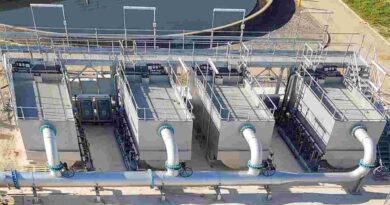Hague Court Ruling Against Shell Sets Up Next Stage Of Fight For The Planet

Royal Dutch Shell, by virtue of having its Headquarters in the Netherlands, suffered a major blow to its commitment, when a district court at the Hague ruled that it was not doing enough to fight climate change, where it has been a contributor. Adding salt to injury, the court has decreed that Shell must reduce its carbon emissions by 45% by 2030, as compared to 2019 levels. That’s a huge reduction in 8.5 years, something Shell is almost certain to appeal against. Chances are, despite the massive support for the green movement in the Netherlands, Shell will not hold back in not so subtle threats to relocate out of the country if forced to comply.
May 26 in general was not a memorable day for Big Oil. Exxon, Chevron and Shell (by far the 3 largest Western oil majors) all suffered either big shareholder revolts centered around doing more for the environment or lost important legal fights, as in the case of Shell.
Shell had set a target of reducing its emissions by 20 percent to the end of the decade, a number that obviously fell way short of the judge’s expectations. And in signaling its displeasure, the court has also laid a fresh marker possibly for all the firms that have been making ‘voluntary’ targets with no hard and fast commitments or consequences for failure to meet those. Shell’s greenhouse emissions were at 1.65 Billion tonnes equivalent in 2019, as much as Russua, the world’s fourth largest polluter and top 3 oil exporter .
This site has regularly argued that the future of the planet, or climate change, is too critical to be left to the largest polluters to fix on their own. The largest, profit driven polluters, one might add. Shockingly, the Corona pandemic has only made the situation worse, by artificially dampening emissions for a short while, leading to a temporary lull in pressure on these firms to reform. China, which has committed itself to net zero by 2060, is a prime example, merrily burning away resources and polluting fuels as it seeks to build on the growth opportunity it spotted in the pandemic for itself. Along the way, it has also ramped up its renewable targets, without doing anything at all, or making its global footprint worse actually, through the many thermal power plants it continues to push through the belt and road initiative.
Similarly, the casino that is Crypto currencies have boomed, especially Bitcoin, with its huge carbon footprint. With the industry almost too large to fail now, efforts are being made to reduce energy impact, especially by currencies like Ether (Etherium), but it remains a questionable waste of energy at this stage.
Large steel, cement and chemicals firms, like Shell have signed up for their own net zero commitments, with timelines ranging from 2035 to 2040 or even 2050. Multiple global platforms have emerged to enable this ‘comfortable’ transition, while making it all look good. That’s just PR. These numbers are simply unacceptable. In most cases, like the adoption of solar power now, these numbers are based on profits actually increasing when firms do something for the environment. Continuing the cycle of exploitation and abuse that has been institutionalised over the decades.
Placing a lot of those plans on questionable technologies like carbon capture, which are quite some distance from viability at any scale, is also a cop out, versus more immediate action to support alternatives that exist right now to recycle more effectively, or improve energy efficiency, if backed by adoption at scale.
We strongly believe that a timeline of 2030 , and a legally enforceable deadline of 2035 in key global markets like the US, for firms to reduce their emissions by at least 75 percent over 2019 numbers, will be required to make real, visible progress on controlling global emissions . A significant part of these numbers will happen on its own, as electricity for instance becomes greener during this period. But much more can be achieved with a singular focus on recycling, reducing (higher efficiencies and less wastage) and support for the transition in developing countries to earn carbon credits.




